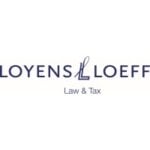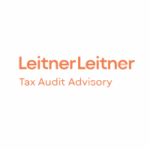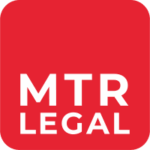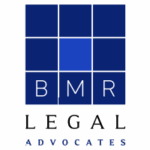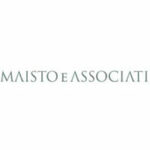-
Is it necessary for a taxpayer to register with the tax authority? Are separate registrations required for corporate income tax and value added tax/sales tax?
Income tax:
Individuals are automatically registered upon establishing residency, while legal entities are registered upon entry into the commercial register. There is no separate requirement for registration. However, in cases where an individual or a company is subject to unlimited tax liability in Switzerland but does not have residency or a commercial register entry, they must initiate registration.
Value Added Tax (VAT):
In Switzerland, companies are required to register for VAT under several circumstances. The process of VAT registration is independent of corporate income tax registration and requires businesses to file an application with the SFTA.
Swiss companies that start business activities or expand by acquiring another company or starting a new line of business must register for VAT if it is expected they will reach a turnover of CHF 100,000 within the next 12 months. Existing Swiss companies, previously exempt from VAT, must register once they surpass this CHF 100,000 threshold at the end of their financial year.
Foreign companies providing services in Switzerland are also subject to VAT registration if they expect to meet the CHF 100,000 turnover threshold. Those already operating in Switzerland must register at the end of the financial year in which this threshold is reached.
Foreign companies that do not perform services in Switzerland are not subject to Swiss VAT. However, domestic branches of foreign companies are liable if they meet the turnover requirement.
Voluntary VAT registration is available for companies that do not meet the threshold but wish to benefit from input tax refunds. This is particularly useful for start-ups with high expenses and low taxable turnover.
-
In general terms, when a taxpayer files a tax return, does the tax authority check it and issue a tax assessment – or is there a system of self-assessment where the taxpayer makes their own assessment which stands unless checked?
In Switzerland, the assessment system varies depending on the type of tax involved:
Direct Taxes (e.g., income and wealth/capital taxes):
In Switzerland, the assessment process for direct taxes such as income tax and wealth/capital tax consists of several steps, starting with the submission of a tax return by the taxpayer. Taxpayers are required to complete this return truthfully and fully, and it must be submitted to the relevant cantonal tax authority by a specified deadline. If necessary, taxpayers can apply for an extension, but failure to submit the tax return on time – even after receiving a reminder – ultimately leads to an ex officio assessment by the tax authority.
Once submitted, the tax authority examines the return, determines the tax factors and calculates the amount of tax based on the applicable rates. The tax authorities may request additional documents to review the tax return. For companies, initial assessments may be provisional, with final assessments made after an audit or when the tax base is finalized by the authorities. This comprehensive procedure ensures that taxpayers’ obligations are met while providing mechanisms for correction and accurate determination of tax liabilities.
Indirect Taxes (e.g., VAT, withholding tax, stamp duty):
Indirect taxes such as VAT, withholding tax, and stamp duty operate under a self-assessment principle. Taxpayers calculate and declare their tax liabilities in their returns and remit payments to the authorities. Following submission and payment, SFTA audits verify compliance, leading to formal decisions based on audit outcomes.
In summary, while direct taxes involve SFTA assessments based on submitted returns, indirect taxes rely on taxpayer self-assessment, with SFTA audits ensuring compliance before issuing formal decisions.
-
Can a taxpayer amend the taxpayer’s return after it has been filed? Are there any time limits to do this?
Direct Taxes:
Taxpayers can generally amend their tax return as long as it has not been definitively assessed by the tax authorities. There is typically no fixed time limit specified in the law for amendments before the final assessment.
The commercial balance sheet (balance sheet and profit and loss account) is the starting point and basis for determining the taxable profit of legal entities. If the tax return of a legal entity has been filed and incorrect values have been disclosed, a balance sheet amendment or balance sheet corrections might be possible. In the case of balance sheet corrections, incorrect valuations (contrary to commercial law) are replaced by correct valuations. Such corrections are always possible as long as there is no legally binding assessment. Balance sheet corrections by the tax authorities are only possible in post-assessment proceedings. When the balance sheet is amended, incorrect balance sheet values are replaced by other, equally correct values.
VAT:
The deadline for the final submission of the correct VAT declaration for a financial year is 240 days after the end of the financial year in question, of which 180 days are the regular deadline, and a further 60 days can be used for the submission. Within this period, the taxable person is obliged to make a final decision on whether or not to make use of the option for certain transactions and to ensure that the formal requirements are met.
-
Please summarise the main methods for a tax authority to challenge the amount of tax a taxpayer has paid by way of an initial assessment/self-assessment.
From a Swiss perspective, the tax authority has several methods to challenge the amount of tax paid by a taxpayer through initial assessment or self-assessment:
Tax Assessment Procedure: The tax authority conducts an initial assessment based on the taxpayer’s submitted tax return or self-assessment. This assessment involves reviewing the income, deductions, and other relevant factors reported by the taxpayer. As part of the assessment procedure, provisional assessments are sent as a first step, which serve to secure the tax and determine the tax authority’s potential tax claim. The provisional assessment usually differs from the definitive assessment, as the tax authorities work with data from previous years to determine the provisional tax burden.
Verification and Audit: The tax authority may conduct a verification or audit to ensure the accuracy and completeness of the tax return. This process involves examining supporting documents, such as bank statements, invoices, and contracts, to verify the declared income and deductions.
Information Requests: The tax authority can request additional information or clarification from the taxpayer regarding specific values in the tax return. This may include inquiries regarding sources of income, expenses claimed, or other relevant financial transactions. In addition, the taxpayer may be informed during the procedure that certain facts will be assessed to their disadvantage if the required information is not provided or proven. The duty to provide information arises from the duty to co-operate in the assessment procedure.
Adjustments and Corrections: If discrepancies or errors are identified during the assessment or audit, the tax authority may propose adjustments to the declared income or deductions. These adjustments aim to correct any inaccuracies and ensure compliance with tax laws.
Penalties and Interest: In cases where errors or omissions result in the underpayment of taxes, the tax authority may impose penalties and interest charges. These penalties are intended to deter non-compliance and ensure the recovery of the correct amount of tax owed.
Overall, the Swiss tax authority uses a detailed assessment process, including verification, information requests, and adjustments, to verify the accuracy of tax payments made by taxpayers, whether through initial assessment or self-assessment. This ensures that tax liabilities are correctly calculated and properly enforced in accordance with Swiss tax laws and regulations.
-
What are the time limits that apply to such challenges (disregarding any override of these limits to comply with obligations to relief from double taxation under a tax treaty)?
Public law claims of the state against citizens in Switzerland are subject to statutory limitations, which are considered ex officio. In tax law, there are two key limitation periods:
The limitation period for assessment determines how long taxes can be assessed after the tax period ends. It consists of a relative period of 5 years, which can generally be extended up to 15 years in cases of interruption or suspension. For VAT, however, there is an absolute limitation period of 10 years.
The limitation period for collection, on the other hand, governs how long taxes can be claimed after the assessment becomes final. It includes a relative period of 5 years and an absolute period of 10 years from the end of the tax year in which the tax was legally assessed.
Enforcement actions resulting in a certificate of loss can extend the collection period to 20 years from the date of the certificate, with interruptions allowed until the end of this period.
Interruptions of the time limitation occur with any official action aimed at establishing or asserting the tax claim, an explicit acknowledgment of the claim by the taxpayer or jointly liable party, or the initiation of proceedings for tax evasion or criminal prosecution in connection with tax offenses.
Regarding legal consequences, tax assessments made beyond the time limitation are contestable but not void. They remain legally binding unless legally challenged by the taxpayer.
-
How is tax fraud defined in your law?
Swiss criminal law divides offenses into three categories based on the sanctions imposed:
- Contraventions: Offenses punished with fines.
- Misdemeanors: Offenses punished with imprisonment of up to 3 years or with financial fines.
- Felonies: Offenses punished with imprisonment of more than 3 years.
For direct tax offenses, there are only two categories: Contraventions and misdemeanors.
- Contraventions: These include procedural violations and tax evasion. The smallest breach of tax obligations is the failure to fulfill procedural duties, such as not submitting the tax return. This is punished with a fine. Tax evasion, a more serious offense, involves any action or omission that leads to an insufficient or non-assessment of the actual tax base (income, wealth). This is also punished with a fine.
- Misdemeanors: These include tax fraud and the misappropriation of withholding taxes. Tax fraud occurs when an individual, with the intent to evade taxes, submits falsified, forged, or materially false documents. Penalties in this respect are determined by the criminal court.
-
How is tax fraud treated? Does the tax authority conduct a criminal investigation with a view to seeking a prosecution and custodial sentence?
Contraventions are prosecuted and judged by the tax administrations themselves, while misdemeanors are prosecuted by the ordinary criminal prosecution authorities (see question 7). In addition, the tax authorities can claim the evaded taxes in subsequent tax proceedings.
-
In practice, how often is a taxpayer audited after a return is filed? Does a tax authority need to have any justification to commence an audit?
In Switzerland, tax audits are carried out by the SFTA and the cantonal tax authorities. The main purpose of a tax audit is to ensure that taxpayers are complying with their tax obligations and to detect any tax evasion. It is important to note that the criteria for determining a tax audit may vary depending on the canton and the specific tax authority involved. In our experience, the factors that may trigger a tax audit are high-risk companies and those that have not been audited for a long time.
-
Does the tax authority have to abide by any standards or a code of conduct when carrying out audits? Does the tax authority publish any details of how it in practice conducts audits?
The SFTA, Swiss Tax Conference (STC), EXPERTsuisse, and the IFF-HSG have collaborated to outline the principles and guidelines in the “Tax Code of Conduct 2021”. This document aims to ensure effective adherence to legal obligations and foster enduring trust between taxpayers, tax professionals, and tax authorities. It serves as a recommendation for the tax administrations, tax professionals, and representatives of businesses engaged in tax-related activities. Additionally, the SFTA issues circulars directed at cantonal tax authorities, trustees, and individuals and entities. These circulars provide detailed guidance on specific aspects of federal direct tax, withholding tax, and stamp duty.
In the present context, it should be noted that all government action requires a legal basis, which embodies the principle of legality of administration. Furthermore, the action must be in accordance with the public interest, reflecting the principle of the general good and the principle of proportionality. In addition, it must be ensured that state action upholds legal equality, which is the principle of legal equality, and does not violate the requirements of good faith, which is the principle of good faith.
- The principle of legality means that all administrative acts must have a sound legal basis; administrative acts that are not based on a legal norm are inadmissible.
- It should also be emphasised that all government action must serve the public interest. The State must both protect and actively promote the public interest.
- With regard to the principle of proportionality, it should be noted that the administrative measures taken, must be both appropriate and necessary to achieve a public interest objective. In addition, the objective pursued must be proportionate to the burdens imposed.
- The principle of equality before the law has two essential aspects: firstly, the right to equal treatment and, secondly, the prohibition of arbitrary action.
- The principle of good faith is expressed in administrative law in two main ways:
- Protection of legitimate expectations: in the context of the protection of legitimate expectations, citizens are entitled to have their legitimate confidence in official assurances and in the actions of the authorities, which give rise to certain expectations protected.
- Prohibition of inconsistent behaviour and abuse of rights: The principle of good faith prohibits both public authorities and private individuals from acting inconsistently or abusing the law. In particular, public authorities are prohibited from changing their position on a matter without objective justification.
Rulings, i.e. requests to the tax authorities for a legal assessment of a matter, are the result of the protection of good faith and grant protection of the status quo, provided that the facts of the case have been presented specifically, correctly and completely. The information has been provided by the competent authority or that authority have been deemed competent in good faith.
-
Does the tax authority have the power to compulsorily request information? Does this extend to emails? Is there a right of appeal against the use of such a power?
The tax authority in Switzerland possesses the authority to compulsorily request information, including the ability to request emails and other relevant documents. Taxpayers are obligated to cooperate with these requests, providing the necessary information to assist in tax assessments.
In cases involving suspected tax offenses, such as tax evasion, the investigating authorities may take additional measures, including conducting house searches and accessing emails. These actions are conducted under specific legal provisions and procedural safeguards to ensure fairness and adherence to the rule of law.
-
Can the tax authority have the power to compulsorily request information from third parties? Is there a right of appeal against the use of such a power?
In Switzerland, tax authorities have the authority to request information from third parties when necessary to clarify matters related to tax assessments. This includes government bodies and private entities who may possess relevant information about taxpayers. Third parties are obligated to provide certifications, information, or reports upon request by the tax authority. If a taxpayer fails to submit the required certifications despite reminders, the tax authority can directly request these from the third party. There are mechanisms in place for taxpayers to appeal against such requests if they believe them to be unjustified or excessive. This ensures that the process remains fair and transparent within the Swiss tax system.
In addition, it is important to note that communications between attorneys and their clients are privileged and cannot be waived. This legal privilege ensures confidentiality and protects the confidentiality of these communications. Moreover, attorneys are generally not required to report suspicions of money laundering unless they are involved as financial intermediaries in a transaction and have reason to suspect that the funds involved stem from tax fraud. This exception underscores the careful balance between legal confidentiality and regulatory obligations within the Swiss legal framework.
It should be noted that bank client confidentiality takes precedence over a direct obligation to certify to the tax authorities (for taxpayers domiciled in Switzerland). The tax authorities cannot, therefore, demand the necessary certification from the bank despite a reminder.
-
Is it possible to settle an audit by way of a binding agreement, i.e. without litigation?
Swiss tax law does not allow for formal settlement agreements to resolve tax disputes. If a taxpayer disagrees with the findings of a tax audit, the appropriate course of action is to follow the formal appeal process. This process may eventually involve litigation if the issue cannot be resolved during the earlier appeal stages.
However, the tax authority is usually open to discussing an amicable solution in complex cases.
Rulings can be used as a preventive measure (see question 10). It is important to ensure that the legal assessment set out in the ruling can be substantiated, i.e. that it is based on one of the possible interpretations of the law. In addition, an amicable solution may be reached with the tax authorities if the facts of the case are in a state of flux and there is a possible restructuring (particularly in the case of companies).
-
If a taxpayer is concerned about how they are being treated, or the speed at which an audit is being conducted, do they have any remedies?
The taxpayer can directly communicate their concerns to the tax authorities conducting the audit. Often, clear communication can help address misunderstandings or procedural delays.
The taxpayer can file an administrative complaint if they believe they are being treated unfairly or if there are unreasonable delays.
For the code of conduct with tax authorities, see question 10.
-
If a taxpayer disagrees with a tax assessment, does the taxpayer have a right of appeal?
The tax procedure in Switzerland typically starts with the tax authorities informing the taxpayer of their decision (e.g. tax assessment). Within 30 days of receiving this notice, the taxpayer may file a formal complaint with the tax authorities. The competent tax authority required to re-examine and, if necessary, modify the initial decision partially or in full, or reject the complaint entirely. It should be noted, that in general the same tax commissioners may be involved in the subsequent re-examination of the case, or a different department may handle it. In some cantons the taxpayer will be notified by the tax administration if the administration intends to deviate from the tax return. In these cases, the taxpayer may submit a statement before the final decision is taken.
If the taxpayer is dissatisfied with the outcome of the re-examination, an appeal to the court can be lodged.
-
Is the right of appeal to an administrative body (independent or otherwise) or judicial in nature (i.e. to a tribunal or court)?
For direct taxes (see question 15), if a taxpayer disagrees with the final tax assessment, they must first initiate an administrative proceeding before being able to take their case to a court (see question 15 above). At the end of this process, the decision can be challenged in court. On the cantonal level (authorities for the tax assessment of direct taxes), these appeals are usually handled by a first and a second judicial instance. These are the cantonal appeal commission (first instance), followed by a final cantonal instance, usually a cantonal administrative court. Please note that direct appeals to these courts are in general not permitted. An exception to this is possible when the tax authority’s position has already been determined and the tax authority indicates that it does not wish to deviate from its predetermined decision, making the procedure a mere formality.
VAT can be used as an example to determine the right of appeal. The SFTA conducts audits that involve a comprehensive review of financial records and related documentation, often followed by discussions of the findings between the entity’s representative and the auditor of the SFTA. The company will subsequently receive a final assessment from the SFTA (usually within five business days; in complex cases, up to one year). Corrections or rectifications of any discrepancies typically can only be addressed through an objection. It is crucial to understand that any objections against this determination must normally be submitted within a period of 30 days to the SFTA. In the event of an appeal, taxpayers pay the tax owed under appeal in order to avoid negative interest charges. Additionally, following an objection, an appeal may be made to the Federal Administrative Court, which serves as the court of first instance (see also question 15).
-
Is the hearing in public? Is the decision published? What other information about the appeal can be accessed by a third party/the public?
Administrative proceedings and court proceedings regarding the different types of taxes are typically conducted in writing, without oral hearings or the presentation of evidence such as witness statements. Exceptionally, hearings for tax offences may be held in public at cantonal level (e.g. Canton of Zurich).
For direct taxes, assessments and proceedings before the tax authority may involve personal meetings, but are in general not held in public and are generally not published. Court proceedings (first and second instance; see question 16) are also conducted in writing and, depending on the canton, are published or sometimes made available online (e.g. in Zurich from 2011 for the appeals commission and in Berne depending on the instance). It should be noted that the decisions are anonymized but the parties to the dispute may be listed for a limited period of time in a physical list. Proceedings before the Federal Supreme Court are generally similar, with the rare possibility of public hearings in exceptional cases. The parties to federal court judgments are made public by listing for a certain period of time as well.
For indirect taxes proceedings are also not public and generally do not involve oral hearings, although personal meetings may occur during assessment and objection proceedings before the FTA. Proceedings at the Federal Administrative Court are conducted in writing and are published anonymously.
-
Is the procedure mainly written or a combination of written and oral?
See question 17.
-
Is there a document discovery process?
A distinction needs to be made between criminal tax law and the regulations regarding the audit of legal entities, etc.
In the area of criminal law, there are two conceivable cases in which the discovery of relevant documents can be of decisive importance for the presentation of evidence and for criminal investigations. A distinction must be made between the jurisdiction of the cantonal and federal authorities and between the types of tax. The first case concerns tax fraud offenses for which the tax authority refers the case to the cantonal prosecution authority. In these cases, the prosecutor can use enforcement measures, such as discovery processes, to obtain documents that can be used as evidence. The second situation concerns tax fraud offences i.e. when the criminal matters and investigations division of the SFTA becomes involved. The head of the Federal Department of Finance authorises the SFTA to conduct enforcement measures.
The tax authorities are empowered to conduct on-site audits (for eg., regarding VAT declarations). In this context, taxpayers are obligated to provide the necessary information and documentation. Audits serve as an important tool for the tax authorities to clarify the relevant facts according to their broad investigative powers, which require taxpayers to collaborate. The principle of collaboration is therefore of the utmost importance. Refusing to provide requested information is unproductive, but it is important to have a clear understanding of what information must be disclosed, and what can remain confidential.
-
Are witnesses called to give evidence?
In general, witness statements are only used to clarify facts if no other evidence is available. Please note that in criminal proceedings, witness statements may play a different role than in other tax proceedings but are also uncommon.
-
Is the burden on the taxpayer to disprove the assessment the subject of the appeal?
The taxpayer generally has the burden of proof for facts that reduce or cancel their tax liability. On the other hand, the tax authority has the burden of proof for facts that justify an increase or decrease in tax liability.
If the assessment authority has a different opinion, the possibility of the taxpayer being able to provide additional evidence can be examined during an audit. In this case, the taxpayer is required to provide necessary documents and information (see questions 4 and 11). If the taxpayer does not comply with this request, this may be interpreted to their disadvantage, which may ultimately lead to a reversal of the burden of proof. Both the principle of investigation and the taxpayer’s duty to cooperate therefore apply. In any subsequent appeal proceedings, it is up to the taxpayer to provide the necessary evidence or to convince the judge that the conclusion is incorrect based on of the available documents.
There is no reversal of the burden of proof in criminal tax proceedings, i.e., the prosecutor must prove the offence. The taxpayer is not obliged to collaborate and may even refuse to testify (“nemo tenetur”). In criminal proceedings based on an indictment or a complaint, the judge must examine whether the prosecution or the tax authority has provided evidence of a criminal offence, whereby the principle of investigation also applies.
-
How long does an appeal usually take to conclude?
The timing of an appeal will vary depending on the complexity of the issues and is influenced by a number of factors. In general, simple matters such as filing tax returns or correcting mistakes in the tax return can be resolved within a few weeks. However, more complex cases, i.e., legal disputes, can take several months or even years. This depends on various factors such as the complexity of the case, the number of instances involved, the availability of information and documents, and the workload of the administration/court. Nevertheless, the authority must adhere to the acceleration requirement. This principle helps prevent unnecessary delays and ensures that cases are resolved in a timely manner.
-
Does the taxpayer have to pay the assessment pending the outcome of the appeal?
In Switzerland, taxpayers are generally required to pay any determined additional tax, be it for direct or indirect taxes or assessments issued by the tax authorities, even if they choose to contest the assessment. This means that the obligation to pay the assessed taxes is not suspended or waived by appealing. However, in general, the enforcement cannot take place until the tax is legally binding, although late payment interest should be taken into account. Nevertheless, by paying the tax (with reservations), negative interest consequences can be avoided. Please note that an appeal can be lodged regardless of payment.
-
Are there any restrictions on who can conduct or appear in the appeal on behalf of the taxpayer?
In principle, there is no need to distinguish between different types of tax. It can be noted that both the taxpayer and their representative and the tax authorities, in exceptional cases also in favour of the taxpayer, can lodge an appeal.
In administrative assistance proceedings, the person concerned and other persons who have been involved in the proceedings or who have not had the opportunity to participate but are particularly affected by the contested decision and have a legitimate interest are entitled to appeal. In order to justify the right of such third parties to intervene in such proceedings, there must be additional circumstances, such as a concrete risk that the requesting State will violate the principle of specialty.
-
Is there a system where the “loser pays” the winner’s legal/professional costs of an appeal?
A distinction must be made between procedural costs and damages. Please note that procedural costs are generally not charged in assessment and objection proceedings, and no damages are awarded in these proceedings.
The procedural costs in administrative appeal proceedings consist of the court fee, the costs of service and, where applicable, cash expenses (e.g., expert costs). The court fee is generally based on the amount in dispute. In cases where the amount in dispute cannot be determined, and in criminal tax cases, the court fee is estimated or set within a certain range.
With regard to court fees, it should be noted that, despite the competences described above, in the area of direct taxes, i.e. federal tax for income and profit tax and cantonal and municipal tax for income and profit tax, two proceedings are conducted that can be settled in one judgement. Therefore, a separate court fee can be charged for each appeal.
The award of reasonable (i.e., not necessarily cost-covering) damages will only be considered if the appellant has prevailed by a large majority or has only narrowly lost and the legally sufficient presentation of complicated facts and difficult legal issues has justified the involvement of a lawyer.
As a rule, the losing appellant must pay the fees. If the objection or appeal is partially granted, the costs will be shared proportionally. The successful appellant will be ordered to pay all or part of the costs if they would have prevailed in the proceedings before the tax authorities if they had acted in accordance with their obligations, or if they have deliberately made the investigation in the proceedings before the court more difficult.
-
Is it possible to use alternative forms of dispute resolution – such as voluntary mediation or binding arbitration? Are there any restrictions on when this alternative form of dispute resolution can be pursued?
In Swiss tax law, there are no alternative forms of dispute resolution for domestic tax disputes between authorities and taxpayers. The closest procedure is the mutual agreement process (MAP) under double taxation treaties, but it takes place between countries, not involving the taxpayer directly. This aims to resolve or prevent double taxation. A MAP can only be requested by the taxpayer if attempts to gain relief through administrative steps under the treaty have failed.
-
Is there a right of onward appeal? If so, what are all the levels of onward appeal before the case reaches the highest appellate court.
Yes, as explained in question 15, depending on the type of tax, there are one or two further instances of appeal up to the Federal Supreme Court. It should be noted that both the tax assessment authorities and the appeal instances have full power of review (cognition), both in law and in fact. In principle, the Federal Supreme Court does not re-examine the facts. It can only challenge the facts if the lower court has established them in a manifestly incorrect manner or on the basis of a violation of the law.
-
What are the main penalties that can be applied when additional tax is charged? What are the minimum and maximum penalties?
A distinction must be made between ordinary tax proceedings and criminal tax proceedings. In the area of criminal tax proceedings, a distinction must also be made between the types of taxes. In ordinary proceedings, no additional penalties are imposed. At most, interest on arrears may be charged, or, in the case of withholding tax, refunds may be withheld.
In the area of income, wealth, profit, and capital taxes, a fine of up to three times the amount of the tax or a prison sentence of up to three years is possible. In addition, withholding tax claims may be forfeited.
For VAT purposes, the minimum penalty is CHF 20,000 (for a negligent false declaration without reference to ambiguities) up to CHF 800,000 (e.g., tax evasion in connection with import VAT) or even imprisonment for up to two years. If the penalty for tax evasion does not apply (imprisonment for up to three years or a fine), evasion of stamp duty or withholding tax is punishable by a fine of up to CHF 30,000 or, if this amount is higher, up to three times the amount of the evaded duty or the unlawful advantage.
-
If penalties can be mitigated, what factors are taken into account?
Penalties cannot be actively mitigated and are confined to the realm of criminal tax law. The degree of culpability plays a crucial role in determining the penalty. Generally, in cases of negligence, the penalty imposed will be lower than that for intentional misconduct. Furthermore, a voluntary disclosure can be submitted to circumvent a fine. However, for this disclosure to be valid, it must be complete and truthful, meaning no information can be withheld. It is imperative that the voluntary disclosure occurs before the tax authorities become aware of any irregularities (not be prompted by external pressure or coercion). Additionally, there must be a tax disadvantage that the disclosure effectively rectifies. The taxpayer is also required to be willing to pay both the tax arrears and any associated interest on those arrears.
-
Within your jurisdiction, are you finding that tax authorities are more inclined to bring challenges in particular areas? If so, what are these?
In recent developments within the Swiss tax authorities, there appears to be a growing inclination towards scrutinizing specific areas, particularly those related to transfer pricing and hidden profit distributions. The Federal Supreme Court’s rulings highlight key aspects shaping the current landscape of tax challenges.
One notable case, Judgement 9C_661/2022 issued on March 26, 2024, establishes that hidden profit distributions are treated as actual payments rather than transactions grounded in binding obligations. Consequently, the court clarified that the default interest on arrears related to these distributions becomes due upon the actual provision or recognition of the pecuniary benefit, irrespective of any due date stipulated under civil law. This judgement underscores a significant point of consideration for tax authorities, as the treatment of such distributions could lead to a more aggressive approach in auditing them.
Judgement 9C_37/2023, issued on June 11, 2024, further emphasises the changing dynamics and deals with the cost-plus method for valuing transactions between related parties. It addresses the methodological and practical challenges in determining the hypothetical arm’s length price, in particular with regard to the establishment of the cost base (cost of production) before applying a cost mark-up. The Court’s position suggests that while operating expenses must be fully taken into account, tax expenses should generally not be included in the cost base. This legal context encourages tax authorities to focus more on the accuracy of operating costs and compliance with the OECD Transfer Pricing Guidelines, particularly with regard to full cost recovery.
Addressing these judicial rulings, the SFTA has issued clarifications in its Q&A regarding transfer pricing. While the SFTA outlines that only operating costs should be included in the cost base under the cost-plus method, it also notes that pass-through costs and mark-ups for low value-added services must adhere to these established guidelines. Such pronounced guidance from the SFTA reflects an inclination towards enforcing stricter compliance measures concerning transfer pricing documentation, despite the lack of explicit rules on this matter in Swiss tax law. Moreover, the SFTA emphasizes the importance of documentation and the arm’s length principle, particularly in transactions where the safe-harbour interest rates published annually offer a degree of assurance to taxpayers. However, the fact that these safe-harbour rates do not apply to short-term loans, and that deviations from these rates necessitate further proof of compliance with the arm’s length principle, suggests a more rigorous approach to ensuring taxpayer adherence.
In summary, it is evident that tax authorities in Switzerland are becoming increasingly vigilant in areas related to hidden profit distributions and transfer pricing valuation methods. The recent judicial rulings and guidance from the SFTA collectively indicate a trend toward heightened scrutiny in these areas, underscoring the importance of detailed documentation and a clear understanding of tax obligations for multinational enterprises operating in the jurisdiction.
-
In your opinion, are there any areas which taxpayers are currently finding particularly difficult to deal with when faced with a challenge by the tax authorities?
As noted in question 30, we expect to see a significant increase in disputes, particularly in the field of transfer prices – an ongoing point of contention between taxpayers and tax authorities. In the area of transfer pricing, authorities are increasing their scrutiny of transfer pricing documentation and frequently question the validity of transfer pricing studies submitted. In addition, company directors and advisers need to be mindful of the latest trends from tax authorities regarding accountability for inaccuracies, reflecting a significant shift in responsibility. This trend appears to be driven by a combination of increased resources available to tax authorities and a growing recognition of the complex nature of transfer pricing issues. In practice, tax authorities are carefully analysing the studies submitted and are increasingly inclined to reject those that do not convincingly demonstrate compliance with the arm’s length principle. Recent case law suggests that the integrity of transfer pricing analyses may be compromised if there are significant discrepancies between the values reported in a transfer pricing study and indicators such as the purchase price of shares or the terms set out in purchase price agreements.
-
Which areas do you think will be most likely to be the subject of challenges and disputes in the next twelve months?
As mentioned above, the tax authorities will be increasingly critical, particularly in the area of transfer pricing. They are keen to optimise and streamline procedures in this area. In addition, the authorities have begun to explore the limits of the protection of legitimate expectations in the area of tax rulings, which serve as binding preliminary inquiries for the assessment of a case. In particular, the authorities are attempting to use the cancellation or revocation of rulings and subsequent court proceedings to determine the cases in which the courts would accept or tolerate revocation.
These developments have the potential to have far-reaching implications for companies seeking legal clarity in tax matters. Given the increasing number of tax audits, companies should be prepared to regularly review and adjust their tax strategies to avoid legal risk and uncertainty. A proactive approach to communicating with tax authorities and careful documentation can be critical to being well positioned in the event of an audit or clarification.
Switzerland: Tax Disputes
This country-specific Q&A provides an overview of Tax Disputes laws and regulations applicable in Switzerland.
-
Is it necessary for a taxpayer to register with the tax authority? Are separate registrations required for corporate income tax and value added tax/sales tax?
-
In general terms, when a taxpayer files a tax return, does the tax authority check it and issue a tax assessment – or is there a system of self-assessment where the taxpayer makes their own assessment which stands unless checked?
-
Can a taxpayer amend the taxpayer’s return after it has been filed? Are there any time limits to do this?
-
Please summarise the main methods for a tax authority to challenge the amount of tax a taxpayer has paid by way of an initial assessment/self-assessment.
-
What are the time limits that apply to such challenges (disregarding any override of these limits to comply with obligations to relief from double taxation under a tax treaty)?
-
How is tax fraud defined in your law?
-
How is tax fraud treated? Does the tax authority conduct a criminal investigation with a view to seeking a prosecution and custodial sentence?
-
In practice, how often is a taxpayer audited after a return is filed? Does a tax authority need to have any justification to commence an audit?
-
Does the tax authority have to abide by any standards or a code of conduct when carrying out audits? Does the tax authority publish any details of how it in practice conducts audits?
-
Does the tax authority have the power to compulsorily request information? Does this extend to emails? Is there a right of appeal against the use of such a power?
-
Can the tax authority have the power to compulsorily request information from third parties? Is there a right of appeal against the use of such a power?
-
Is it possible to settle an audit by way of a binding agreement, i.e. without litigation?
-
If a taxpayer is concerned about how they are being treated, or the speed at which an audit is being conducted, do they have any remedies?
-
If a taxpayer disagrees with a tax assessment, does the taxpayer have a right of appeal?
-
Is the right of appeal to an administrative body (independent or otherwise) or judicial in nature (i.e. to a tribunal or court)?
-
Is the hearing in public? Is the decision published? What other information about the appeal can be accessed by a third party/the public?
-
Is the procedure mainly written or a combination of written and oral?
-
Is there a document discovery process?
-
Are witnesses called to give evidence?
-
Is the burden on the taxpayer to disprove the assessment the subject of the appeal?
-
How long does an appeal usually take to conclude?
-
Does the taxpayer have to pay the assessment pending the outcome of the appeal?
-
Are there any restrictions on who can conduct or appear in the appeal on behalf of the taxpayer?
-
Is there a system where the “loser pays” the winner’s legal/professional costs of an appeal?
-
Is it possible to use alternative forms of dispute resolution – such as voluntary mediation or binding arbitration? Are there any restrictions on when this alternative form of dispute resolution can be pursued?
-
Is there a right of onward appeal? If so, what are all the levels of onward appeal before the case reaches the highest appellate court.
-
What are the main penalties that can be applied when additional tax is charged? What are the minimum and maximum penalties?
-
If penalties can be mitigated, what factors are taken into account?
-
Within your jurisdiction, are you finding that tax authorities are more inclined to bring challenges in particular areas? If so, what are these?
-
In your opinion, are there any areas which taxpayers are currently finding particularly difficult to deal with when faced with a challenge by the tax authorities?
-
Which areas do you think will be most likely to be the subject of challenges and disputes in the next twelve months?
